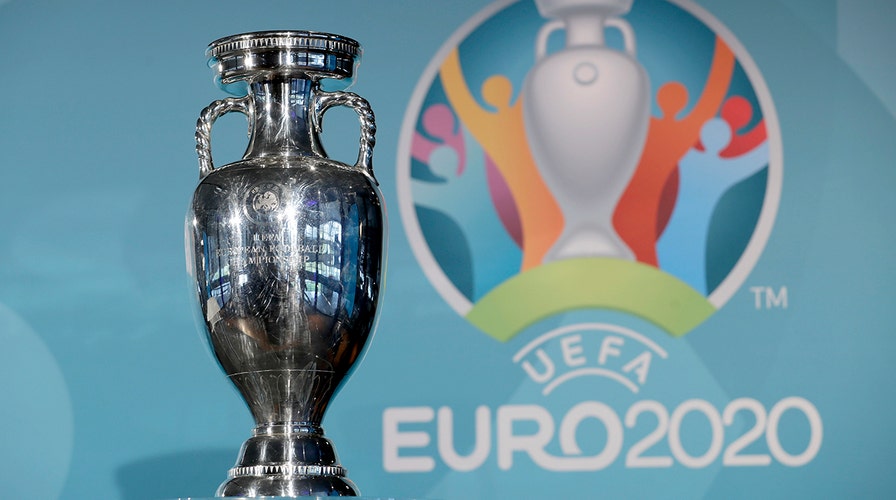Fox News Flash top headlines for April 7
Fox News Flash top headlines are here. Check out what's clicking on Foxnews.com.
UEFA is exploring changes to Financial Fair Play rules as clubs grapple with the sudden loss in revenue caused by the coronavirus pandemic abruptly halting competitions across Europe.
The cost-control regulations were introduced a decade ago as a response to the global financial crisis caused by the banking collapse in a bid to prevent European clubs accumulating big losses.
But the break-even rules, which force clubs playing in the Champions League and Europa League to spend only what they earn, restrict wealthy owners from pumping money into clubs to spend on transfer fees and player salaries.
CLICK HERE FOR MORE SPORTS COVERAGE ON FOXNEWS.COM
Now such injections of cash from investors could be necessary to maintain the financial health of clubs. Some clubs, including 2019 Champions League finalist Tottenham, are benefiting from tax payer aid with some non-playing staff furloughed using a British government scheme that pays wages.
UEFA, while trying to figure out when the season can resume, is assessing the rule changes needed as the pandemic causes financial tremors across the European game.
“A working group has been set up to look at how club licensing/FFP might need to adapt to take account of the extraordinary challenges that clubs face, as a result of the COVID-19 crisis," UEFA told The Associated Press on Tuesday. "The situation is evolving fast and the working group is continuously monitoring the situation with the aim to come to a proposal in the coming weeks.”
Spanish league president Javier Tebas has been a long-standing advocate of FFP, particularly pushing for Paris Saint-Germain and Manchester City to be punished because they benefit from investments linked to nation-state ownership.
City has been banned from the Champions League for the next two seasons for alleged deceptions about the source of revenue from Abu Dhabi — a case and appeal that is not impacted by any FFP changes.
But Tebas is now relaxing his stance about owners pumping cash into clubs, if that does not distort the player market.
“If those people want to invest a lot of money into football ... to reduce the debt levels of clubs," Tebas said, "well I think that would be studied and I think that could be possible.”
But Tebas still does not want countries like Qatar, which owns PSG, to be allowed to inflate the bank balances which can be spent on players.
“What is concerning is the states,” Tebas said. “When the crisis comes to an end maybe they won’t be affected. If we talk about these clubs owned by states this is something I don’t agree with.
“The fact we have a crisis doesn’t mean we should allow any financial contribution just from anyone. ... So if (someone) comes along and wants to help a club and with a billion euros that should be to help to reduce the debt levels. That shouldn’t be allowed to get a competitive advantage and then their losses are going up for the next few seasons."
FFP is also about ensuring clubs meet their financial obligations, including paying transfer fees to rivals on time. Spanish clubs have 350 million euros in outstanding transfer payments to collect from European clubs by Sept. 30, according to Spanish league president Javier Tebas.
“If European clubs don’t pay Spanish clubs the Spanish clubs may not be able to pay other European clubs,” Tebas said. “That is why it’s important for the Financial Fair Play regulations to continue as they are and there is no one who wants to make the most of the circumstances and not pay. It is important Financial Fair Play regulations are abided by as they exist at the moment."
The UEFA executive committee did agree last week to give member associations more time to complete the club licensing process, including providing financial documents, given there is no clear time frame for starting next season.
“The current exceptional circumstances necessitate some specific interventions to facilitate the work of member associations and clubs,” UEFA said of FFP.
Marseille is the biggest club announced as being under investigation for its finances this season after being accused of breaching an agreement imposed to settle previous financial problems. The club, which is second in the French league, agreed not to exceed a loss of 30 million euros under FFP calculations this season, and limit the ratio of player salaries compared to overall revenue.
According to the most recent data from UEFA, club across Europe made a combined profit of 140 million euros in 2018 compared to losses of 1.163 billion euros in 2009 before FFP was implemented.

